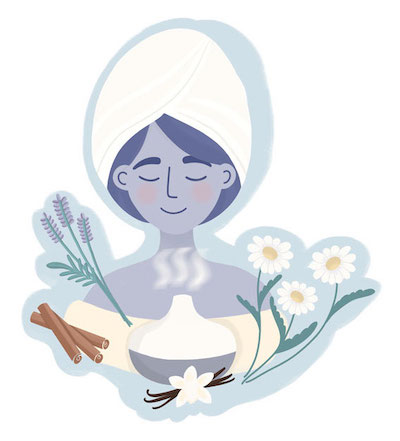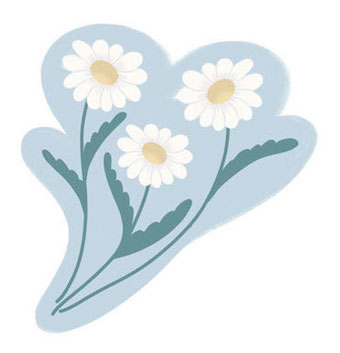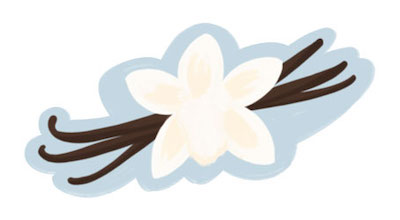Aromatherapy is the use of scent to stimulate a psychological or physiological response. These responses can often help with a range of issues, such as depression, anxiety, or pain.
Aromatherapy is also commonly employed to help people who have difficulty getting enough sleep or who suffer from insomnia. The scents of certain essential oils can be beneficial for insomniacs or anyone who has difficulty sleeping. They can cause them to feel more relaxed and reduce feelings of stress.
If you have trouble sleeping, read on to find the best scent for your sleep!
Cedarwood

Cedarwood oil has been used for a number of medicinal purposes since ancient times. It is an oil that has a woodsy, sweet aroma and is derived from cedar tree bark. Various studies have shown that cedrol, which is an active component in cedarwood oil, acts as a sedative. It also helps to relieve tension and increases the production of serotonin. Cedarwood benefits users of the oil by providing a soothing effect that eases stress and helps people relax. This is important for individuals who have difficulty calming down at the end of the day. The results from these studies show that it works best when inhaled.
- Effects of Cedrol on the Autonomic Nervous System in Three Countries (PDF)
- Which Essential Oils Can Help You Sleep Better?
- Five Calming Essential Oils That Lull You to Sleep (PDF)
- Seven Benefits of Cedarwood Essential Oil
Lavender
 One of the most common essential oils for sleep is lavender oil. It has been used for thousands of years and is a popular remedy because of its ability to reduce stress and calm users. In addition, it also helps individuals with mild insomnia and other sleep-related problems. Between 1990 and 2012, researchers conducted more than a dozen studies on the inhalation of essential oils and their effect on sleep. These tests commonly focused on lavender oil and oil blends. The results of these tests showed that essential oils, such as lavender, served as a suitable alternative to other, potentially more harmful sleep aids. Other studies, some of which were conducted on mice and others on humans, showed that lavender lowers one’s heart rate and blood pressure. This can improve sleep quality and help sleep come more easily. Additionally, subjects of certain studies showed an increase in slow and deep-wave sleep patterns.
One of the most common essential oils for sleep is lavender oil. It has been used for thousands of years and is a popular remedy because of its ability to reduce stress and calm users. In addition, it also helps individuals with mild insomnia and other sleep-related problems. Between 1990 and 2012, researchers conducted more than a dozen studies on the inhalation of essential oils and their effect on sleep. These tests commonly focused on lavender oil and oil blends. The results of these tests showed that essential oils, such as lavender, served as a suitable alternative to other, potentially more harmful sleep aids. Other studies, some of which were conducted on mice and others on humans, showed that lavender lowers one’s heart rate and blood pressure. This can improve sleep quality and help sleep come more easily. Additionally, subjects of certain studies showed an increase in slow and deep-wave sleep patterns.
- Six Aromatherapy Essential Oils for Stress Relief and Sleep
- Lavender as a Sleep Aid
- Lavender Oil: The New Sleep Aid
- Sleepless Night? Try Essential Oils
Roman Chamomile
 The perennial Roman Chamomile has long been used by people who have difficulty sleeping and is considered the most effective at helping with sleep issues. It may even reduce nightmares. Chamomile and its effect on insomnia have been the subject of numerous studies and clinical trials. It has been shown to have a sedative effect that helps to relax one’s muscles and works as a natural remedy for insomnia.
The perennial Roman Chamomile has long been used by people who have difficulty sleeping and is considered the most effective at helping with sleep issues. It may even reduce nightmares. Chamomile and its effect on insomnia have been the subject of numerous studies and clinical trials. It has been shown to have a sedative effect that helps to relax one’s muscles and works as a natural remedy for insomnia.
- Chamomile: An Herbal Medicine of the Past With a Bright Future
- Roman Chamomile Oil: Ancient Soldiers’ Secret Weapon
- Seven Essential Oils You Should Try for a Good Night’s Sleep
- Aromatherapy: Chamomile
- Roman Chamomile Essential Oil Benefits and Uses
Vanilla
 Vanilla is a common and popular scent that is often combined with lavender essential oil to help people relax and sleep. It does not, however, depend on lavender to have a relaxing effect on those who smell it. Vanilla is a homey scent that often reminds people of pleasant childhood memories. As a result, people often experience a sense of relaxation and restful sleep when they inhale the scent of vanilla at bedtime. Stress tests have shown that the scent of vanilla helps people relax by steadying your heart rate and lowering blood pressure.
Vanilla is a common and popular scent that is often combined with lavender essential oil to help people relax and sleep. It does not, however, depend on lavender to have a relaxing effect on those who smell it. Vanilla is a homey scent that often reminds people of pleasant childhood memories. As a result, people often experience a sense of relaxation and restful sleep when they inhale the scent of vanilla at bedtime. Stress tests have shown that the scent of vanilla helps people relax by steadying your heart rate and lowering blood pressure.
How to Use Aromatherapy for Sleep
Finding the right scent or essential oil is just the first step. You’ll also need to understand how to use it to achieve maximum results. This depends on the specific oil that is being used, but there are a few methods that generally apply.
- Using diffusers, adding drops of oil on a cotton ball near one’s bed or pillow, or using a spray to mist linens are safe and easy ways to enjoy the benefits of essential oils.
- Certain skin-safe oils, such as lavender essential oil, can be diluted in carrier oils and applied topically and may be used for massages or as perfumes.
- Drops of oil may also be added to bathwater to provide benefits from both inhalation and topical contact, but keep in mind that a hot bath may interfere with the natural sleep cycle if done too close to bedtime.
So, follow these steps to make sure you’re getting the most out of your essential oils.
- The Smell of Sleep: How to Use Aromatherapy at Bedtime
- Exploring Aromatherapy: Methods of Application
Also, make sure to pick the correct sleep products to make sure you are getting the best sleep possible!
Featured image: Subbotina Anna/Shutterstock

